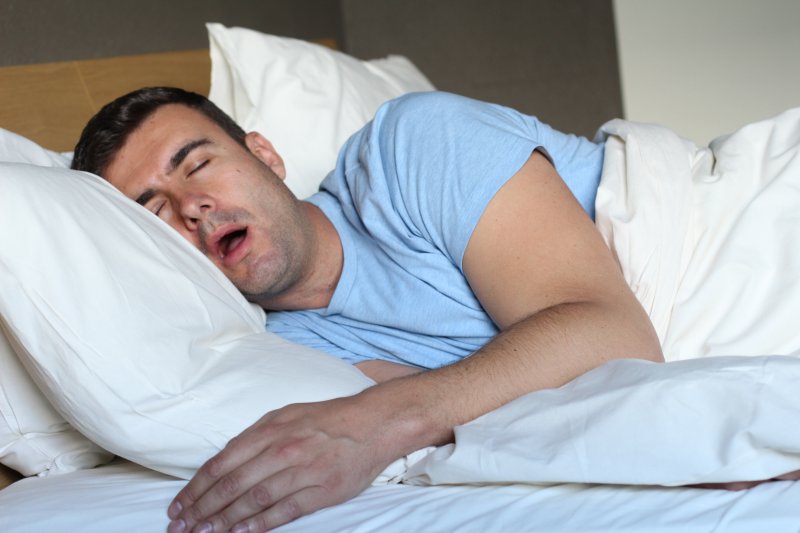
When you think of sleep apnea, you may often envision loud snoring, restless nights, and daytime fatigue. But did you know that sleep apnea could also be linked to something as mundane as drooling? There’s no need to panic if you do this occasionally, but if it’s a frequent occurrence, you might want to see your dentist. But what does drooling have to do with sleep apnea, exactly? Continue reading to find out.
How Does Sleep Apnea Cause Drooling?
Patients with obstructive sleep apnea (OSA) often have a hard time breathing through their noses at night. This is because the throat muscles relax excessively during sleep and partially block off the airway to the nasal passages. As a result, many will breathe with their mouth.
Your body will try to compensate for this by increasing saliva production, so your oral tissues don’t dry out. This excess saliva will pool up, especially if you sleep on your side, and then run out of your mouth.
Why Is Mouth Breathing Bad?
Many patients, even those without OSA, will breathe through their mouth regularly due to other obstructions like allergies. So, what’s the big deal? Apart from being an inconvenience, chronic mouth breathing can lead to oral health problems. When your oral tissues dry out, they become more prone to bacteria. Over time, an excessive amount of unchecked bacteria can lead to cavities, gum disease, or other oral infections.
How Do I Stop Breathing Through My Mouth?
If you or a loved one notice excessive drooling along with other symptoms of OSA, it may be time to see a specialist. If your dentist also practices sleep medicine, they’ll ask you to perform a sleep test and check you for:
- Snoring, gasping, or choking during sleep.
- Daytime fatigue or focus issues.
- Headaches after waking up.
- Frequent interrupted sleeping patterns.
These are common indicators of OSA that, when combined with excessive drooling, may lead to a diagnosis. Once this connection has been made, your dentist can begin treating you based on your needs.
While some patients use a CPAP machine, many find it too bulky or obstructive. Your dentist may instead offer a smaller CPAP or an oral appliance that corrects your jaw position while you sleep.
While the connection between sleep apnea and drooling may not be obvious, understanding this link may help you identify and address your OSA. By seeking evaluation and treatment as soon as you notice symptoms, you can find relief and improve your sleep quality. Don’t let drooling dampen your sleep—call your sleep dentist today for a consultation.
About the Author
Are you having trouble with sleep apnea? Dr. Jeff Rodgers is an expert in sleep medicine who has been practicing for over 20 years. He earned his dental doctorate at the University of Alabama School of Dentistry and began taking advanced courses in sleep dentistry to master the use of oral appliances and other treatment options to help his patients get a better night’s rest. Call (770) 394-4310 to schedule a sleep apnea consultation at Sleep Better Georgia or visit the website to learn more.
